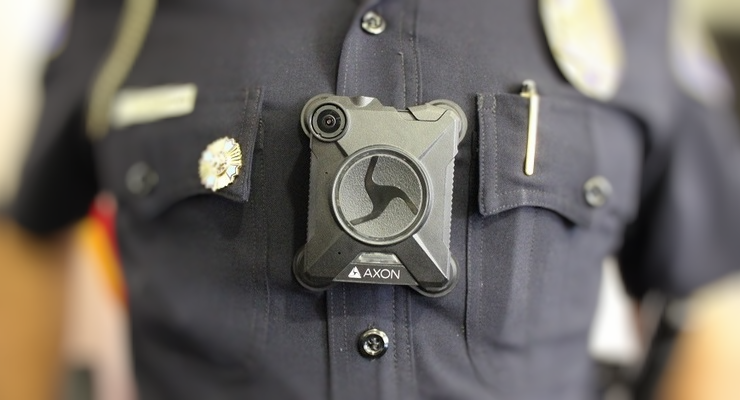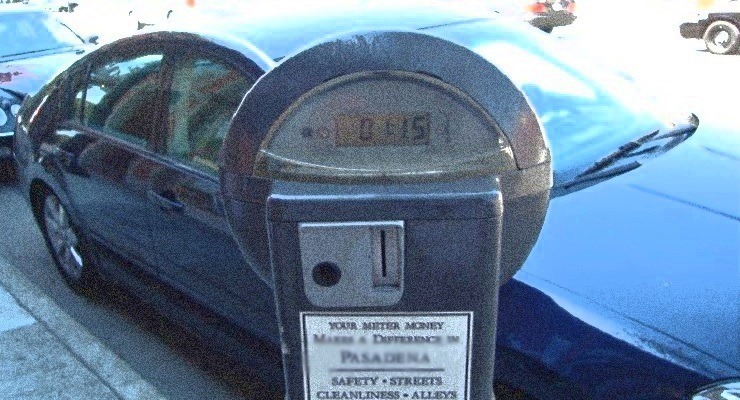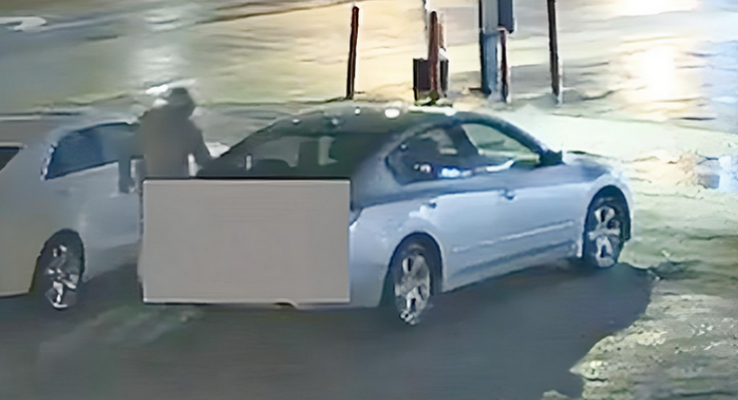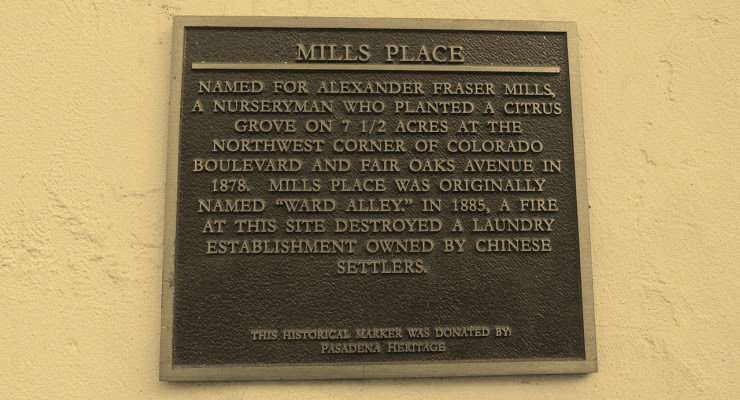
Following the commission’s discussion reviewing the proposed plaque revisions, the commissioners decided not to take action and edit the language, which would describe a violent incident 135 years ago that destroyed the city’s Chinese
The metal plaques located at both ends of Mills Place in Old Pasadena currently read: “Named for Alexander Fraser Mills, a nursery man who planted a citrus grove on 7 ½ acres at the Northwest corner of Colorado Boulevard and Fair Oaks Avenue in 1878. Mills Place was originally named Ward Alley in 1885. A fire at this site destroyed a laundry owned by Chinese settlers.”
The proposed revised language before the Commission read: “This plaque is dedicated to the resilience and perseverance of Chinese settlers who, like so many before them, bestowed dignity and grace upon American soil.”
The revised plaque would also state on November 6, 1885, a Chinese wash house at the site was burned by a violent mob, forcing some roughly 60 to 100 Chinese Americans who worked as business owners, ranch hands, fruit pickers and others, to leave Pasadena.
The revised language characterizes the burning down of the business community as a result of “xenophobia and prejudice.”
The revised language would also state that after the incident, a resolution was passed by “white Pasadenans” barring Chinese people from living in the predominant white parts of Pasadena, therefore forcing these settlers into segregated enclaves.
“This plaque acknowledges the solemn denial of freedom and equity these settlers faced, and recognizes their sacrifice in making Pasadena the thriving multicultural and multiracial, city it now is. From the ashes of intolerance, this tribute honors their fortitude, accomplishments, entrepreneurship, and contributions to innovation in the city of Pasadena,” it would read.
Commissioner Sandy Greenstein said there might be a need for information about other businesses that were set ablaze during the incident because the revised language claimed the whole community was burned down and not just the wash house.
“I have no problem with the basic content and I think there is a discrepancy if you say a whole community of businesses was burned down. Clearly, a whole community was the victims of xenophobia and prejudice, but we’re saying here that all the businesses were burned down and we don’t know that.”
“I think it is better to take a little more time and have a very well-formulated plaque because it’s expensive to produce it and I don’t think we should be sloppy on what we put up,” Greenstein said.
Commissioner Wilhelmina Robertson remarked that the revised language is too long.
Susie Ling, associate professor of Asian American Studies and History at Pasadena City College commented that it was not “white Pasadenans” who barred the Chinese from living in predominant parts of Pasadena after the fire but the city hall.
“I was a bit confused by the phrase ‘white Pasadenans’ when I thought it was City Hall that segregated the Chinese after the fire,” Ling said.
Ling also requested that the plaques be placed not in alleys but in predominant streets such as Colorado and Fair Oaks.
“I think we have been marginalized too long and I would love to see the plaque in a predominant street,” she said.
The commission will again discuss the revised language in its next meeting, according to its chair Brandon Lamar.












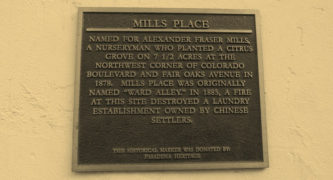

 0 comments
0 comments
